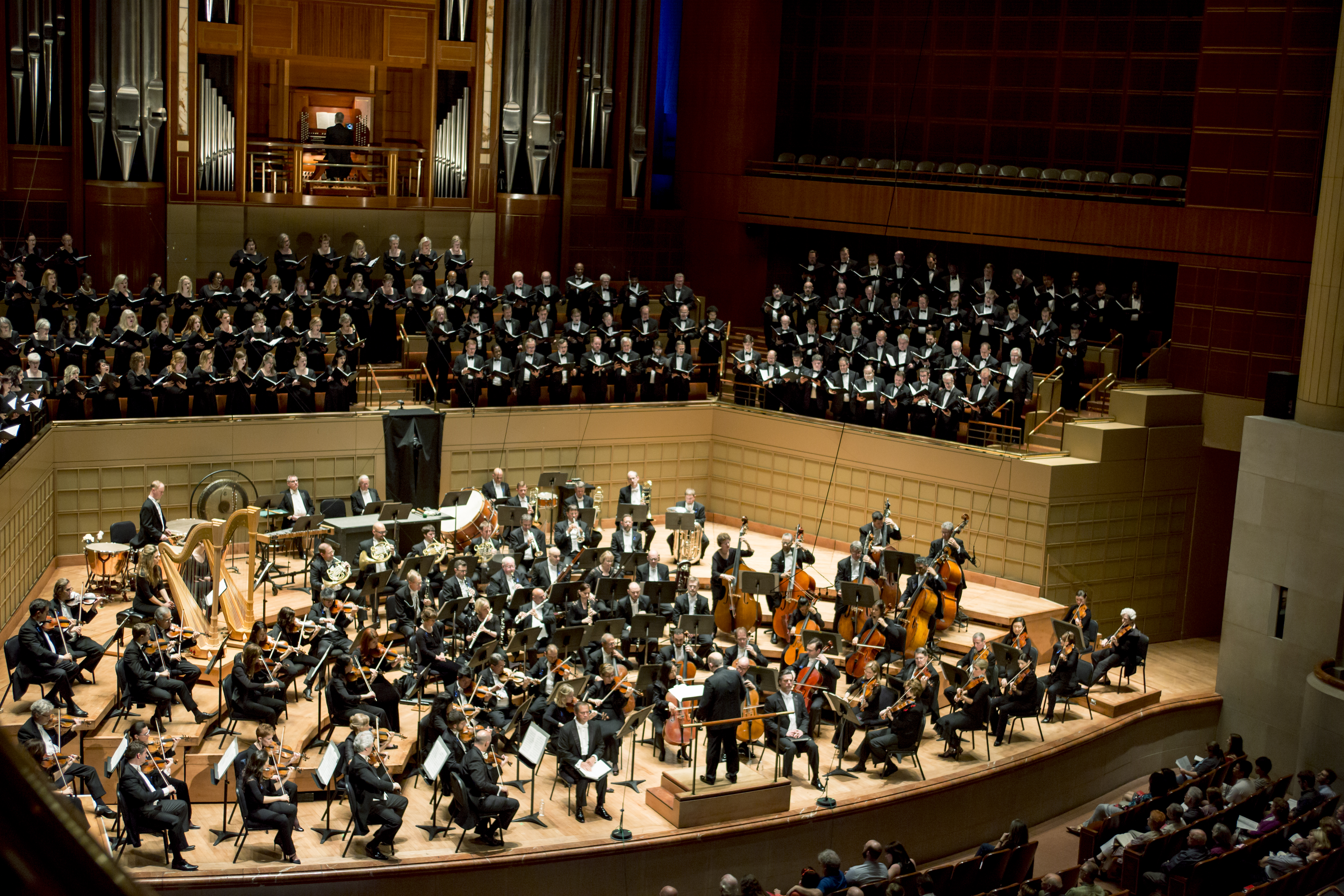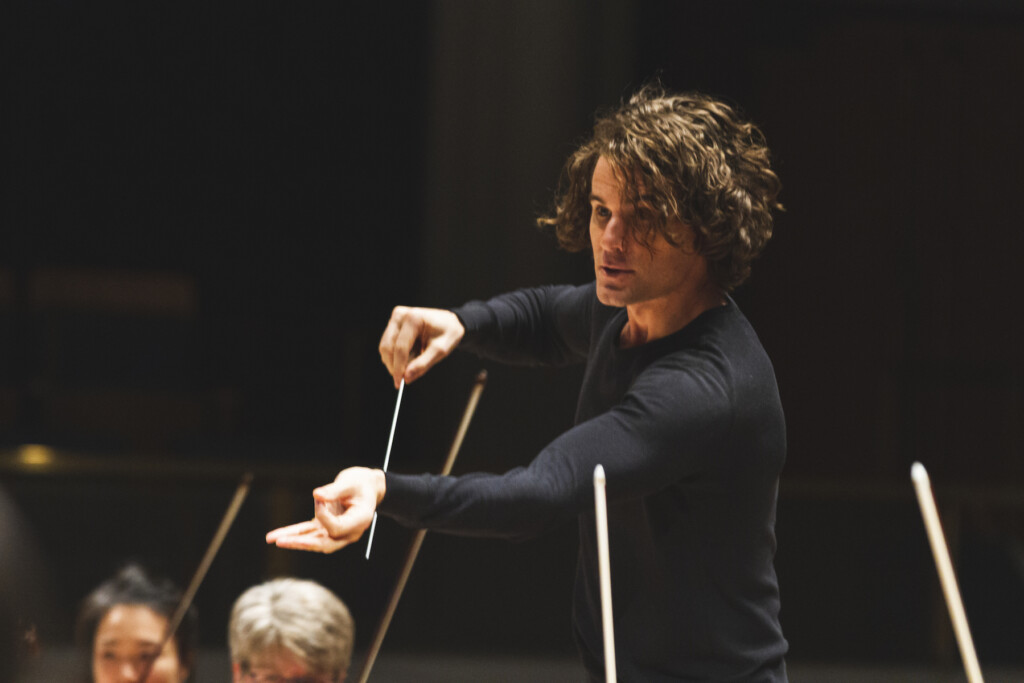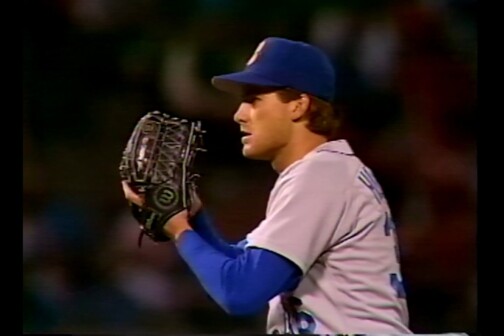As a composer, conductor, arranger, producer, and singer/songwriter, Steve Hackman isn’t your everyday millennial multi-hyphenate. The 42-year-old has collaborated with Doja Cat, the Sunday Service Choir, and Steve Lacy. His work has a goal to renew interest in classical music among millenials and Gen Z’ers by creating unlikely fusions between great, traditional works and contemporary music.
On Saturday night, March 4, he’ll bring one of these fusions to the Dallas Symphony Orchestra: a night of Tchaikovsky and Drake.
Led by internationally renowned Music Director Fabio Luisi, the DSO is a cornerstone of the Dallas cultural scene and has spent this year expanding its calendar. Its current season has featured a wide variety of events, ranging from Don Quixote and Beethoven’s “Pastoral” to pops like Aretha: A Tribute and Harry Potter and the Chamber of Secrets in concert.
We caught up with Hackman from his home in Los Angeles to discuss the DSO, his approach to building nationally touring fusions from the ground up, and his hopes for the future of classical music.
Building the excitement and following around these events hasn’t been easy, by the way. Notorious for its strict adherence to the status quo, maintaining longstanding traditions has been a double-edged sword for the classical industry. Speaking broadly, its insistence on musical mastery and traditionalism has turned off younger composers, while audience members are getting older, not younger.
Hackman enters this space as part of a cohort of musicians eager to change that dynamic. This group has its sights set on the future of the genre and how it can attract new interest through contemporary music. They believe relying on the appreciation of the art and magnanimity of the masters alone won’t entice the coming generations.
Here’s how he sees it, edited for length and clarity.
Why Dallas Symphony Orchestra? Drake has talked a lot about Texas and his love of Dallas is well documented. This is not your first time putting this show on, why bring it to Dallas now?
This is part of the dream to play with the best orchestras in the world and Dallas Symphony Orchestra is one of those. The program was their selection. I have a catalog of these fusion productions and I was quite surprised that they chose Tchaikovsky and Drake, especially for my first outing with them.
Usually orchestras will do either Brahms and Radiohead or Beethoven and Coldplay first because they’re kind of a good jumping off point, the right introduction to my technique and my work for an orchestra and community. But in this case, the Dallas Symphony is doing a young professionals gala and they thought that the music of Drake would really be applicable and appropriate for this event. So I was all about it.
The culture needs to change and evolve to accommodate this new generation.
Steve Hackman
I watched your TEDx and you talked about Radiohead/Brahms and that anxiety and tension that you feel is shared between [them]. Then in the write up for Tchaikovsky and Drake, you mention their shared romanticism. Can you talk about that?
Yeah, romanticism, sentimentality, the transparency with which they convey their emotions—they’re both kind of heart-on-the-sleeve. What kind of started this for me was Drake’s album Take Care. That’s when I started to really pay attention. I was just moved by that album.
This interesting kind of combination of how genuine and authentic he could be, but then also, of course, he could be a total showman—not to mention a strong musical voice and a strong production voice. Take a song like “Marvin’s Room.” This is the kind of song I would have just, like, played every day in high school, you know? I would have fallen asleep to this song. I would have woken up to it. I would have played it when I’m hanging out with my girlfriend, you know?
I wasn’t in high school of course, I was in my thirties. But it still hit me like that; it had this adolescent quality of, this is what it feels like to feel love and heartbreak and that longing for the first time ever. That’s what it sounds like. And to me, that’s Tchaikovsky’s Fifth Symphony and specifically the second movement of Tchaikovsky’s Fifth Symphony. You hear that horn solo in that second movement and you’re like, “Oh my gosh”! That is what I feel like is represented aurally. And so that’s where the idea to kind of combine them first came.

Do you have another song that you love from Drake that might be incorporated into this show, and if so how did that play into the [Tchaikovsky] song that you positioned it against?
I’m gonna go from obvious to kind of more esoteric, dark horses. “Hold On, We’re Going Home” is one of my favorite Drake songs. That’s a song [that] if it was a CD I would have worn it out. And in this piece it has actually two different settings. There’s a setting of it that is in one of the interludes where it’s very much deconstructed and it’s almost like we’re all of a sudden in this classical cabaret of sorts: this beautiful singer is singing this song and this stripped down, kind of cabaret but yet classical, orchestra.
And then that segues into a reading of the piece where you hear the actual Drake beat and we use Drake’s actual drum samples, so you’re hearing the actual beat and the orchestra joins in and that’s a gorgeous accumulation of sound.
“God’s Plan” is, I think, his most played song. You know, this has happened for me and some of my fusion works where the most popular song by an artist is not my favorite. It might even be one that I’m not drawn to at all. I was just listening to it, having a hard time getting into it. I see where he’s at with the message and I can get into that, but it wasn’t connecting with me. Then I chose to put it in the show.
I wanted to challenge myself to find an arrangement of it that would be compelling. I was like, if I can convince myself to like this, and that will be a big feat, hopefully then the people that do like that song, hopefully it’ll make it even better for them. And I think the piece achieves that. I mean, “God’s Plan” is maybe my favorite section of the show.
The dark horses, like “5am in Toronto,” the way Jecorey [Arthur, a rapper performing in the show] delivers that one and the orchestration of it, I’m very proud of. There’s just an intensity to it. There’s an insistence of the rhythm and of his rhythmic delivery that I love. Then we come out of this big developmental section that “Energy” is paired with. And then “HYFR” kind of our journey back to “Marvin’s Room.”
You talked about this a little bit with “God’s Plan,” how there was a little bit more friction with that one. Are there other songs where finding that commonality has been either more difficult or less difficult?
Well, I wouldn’t have undertaken the writing of the piece if I didn’t find some sort of commonality in the first place, you know? A conceptual one, a premise. But actually, in most cases, the premise is not musical: Beethoven/Coldplay, it’s a shared universality. Tchaikovsky/Drake, it’s a shared sentimentality.
But I was quite sure musically this was going to work because rap, unlike alternative rock, can be deconstructed more thoroughly because of the way that rap is superimposed over rhythm and samples. Meaning you can recontextualize it easier.
All you need is music that’s the same bpm and you can [match it with] a rap verse. We all know this from going to clubs and listening to DJs. But this piece went through several phases. The first version of the piece pretty much was just Drake raps over Tchaikovsky’s original music. Then I would also use Drake’s melodies and I would alter and rewrite the melodies in order to accommodate Tchaikovsky’s harmonies.
But essentially we were listening to a Tchaikovsky Symphony with either Drake raps or Drake melodies over the top. And that’s all it was. I didn’t think it worked because it was too much. It was sensory overload. So in the second version of the piece, I created these interlude moments where we could go into this hybrid sound world and focus on one or the other, which worked a lot better. Now it’s the new version that I really think gives us the dose we want of Tchaikovsky, of Drake, and of the hybrid. I think it’s the kind of perfect marriage now.
I want to hone in on one thing that you have been vocal about, which is using these fusion works as an entry point for younger audiences to become interested in the classical masterpieces. In the success of that, how do you envision them showing up and participating in what classical music culture is? What is the classical music world that you would like for them to contribute to?
I think the success of these fusion productions might represent a crucial inflection point for the classical music industry. That is, this classical repertoire is appealing to a younger generation. Gen Z and millennials are intrigued by classical music, the mastery it takes to play those instruments, the depth of the repertoire, the beauty of the music, the value of its messages.
I think the fact of the matter is that the culture needs to change and evolve to accommodate this new generation. If we want industry-wide success for this genre and for this art form, I think we need to consider that the culture around it and the experiences, the rituals need to evolve to accommodate the new kinds of listeners we have. I think this is starting to show a little bit, and if these works open that conversation up—and it might take another 30 years—that would be very satisfying to me.
Among the event’s 80 person orchestra, featuring Hackman on piano, are local Dallas vocalists India Carney, Malia Civetz and Mario José, rapper and emcee Jecorey Arthur, Braylon Lacy on bass and TaRon Lockett on drums. The Music of Tchaikovsky x Drake composed by Steve Hackman is benefiting the Kim Notelmy: Young Musicians Program, an after-school organization providing arts access to underrepresented communities, and takes place Saturday March 4, at 6:30pm at the Morton H. Meyerson Symphony Center.





